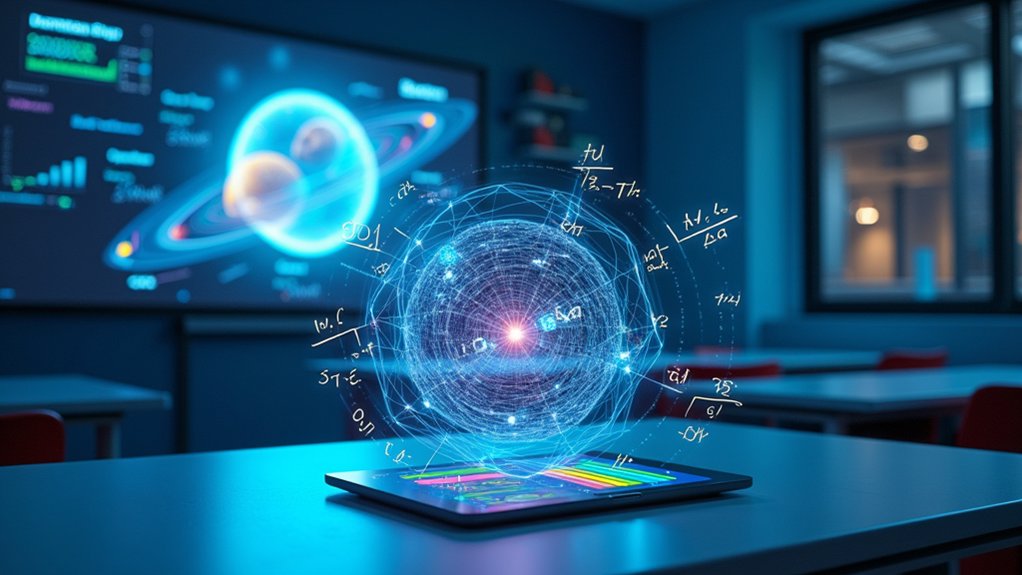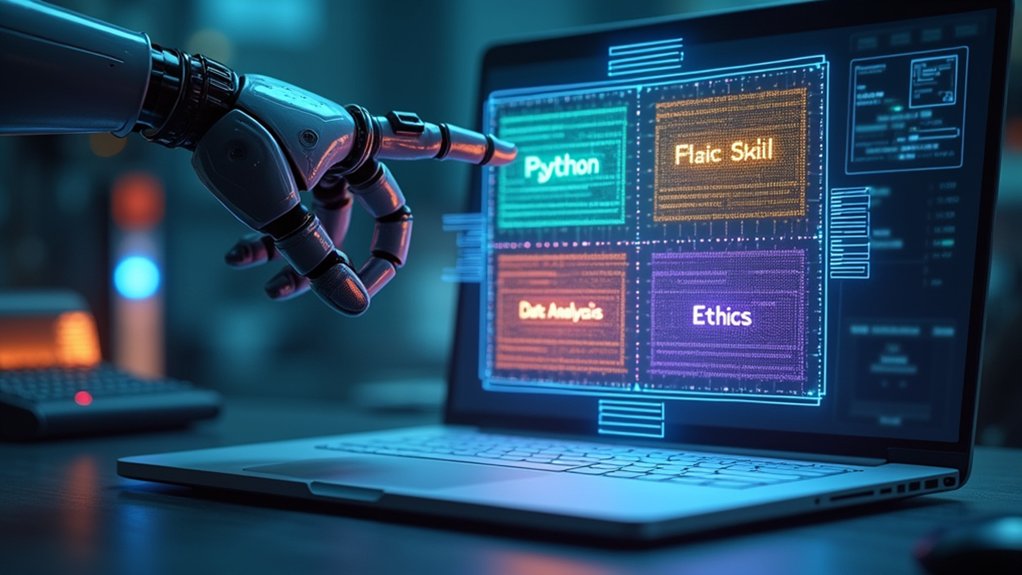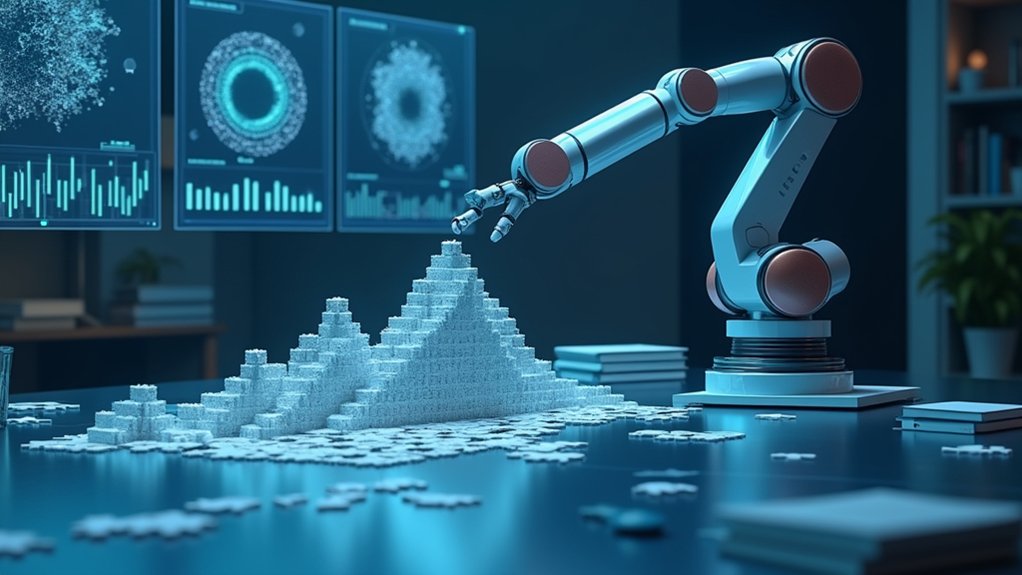In a world where AI tutors can straight-up double student engagement, physics and math are getting a serious upgrade. Students are ditching dull lectures for these digital sidekicks that adapt to their quirks—tailoring content to fit every learning style, pace, and knowledge gap. It’s like having a tutor who actually gets you, not some drone droning on.
AI tutors are straight-up doubling engagement, turning physics and math into personalized adventures that adapt to every student’s vibe.
Oh, and motivation? Skyrocketing. Studies show kids are twice as pumped up, reporting more fun and that elusive “growth mindset.” Who knew AI could turn brain-busting problems into a thrill ride?
But wait, it’s not just hype. These AI whiz-kids deliver real results, with Harvard research proving students learn twice as much physics in half the time. Additionally, AI tutors offer personalized support for struggling students, boosting their confidence and performance in complex subjects. Talk about a game-changer—scoring higher on tests, grasping concepts deeper.
And the best part? They’re always on, offering 24/7 access for late-night cram sessions or random “what if” questions. No more waiting for office hours; it’s instant feedback, folks, with step-by-step breakdowns that feel like a personal cheerleader.
Features seal the deal. Adaptive platforms tweak difficulty on the fly, turning tough math into bite-sized wins. Interactive problem-solving? AI breaks it down, guiding without spoon-feeding—simulations and visuals make concepts click.
Personalized feedback highlights weak spots, while progress tracking spots trends teachers miss. Students build problem-solving skills, thinking critically instead of guessing.
Sure, it’s impressive, but let’s be real: AI making physics exciting? That’s almost as wild as a math joke landing. Yet, studies link this tech to better grades, deeper understanding, and yep, more passion.
In this setup, students aren’t just learning; they’re loving it, one sarcastic AI quip at a time. Moreover, AI tutors enhance educational inclusivity by catering to diverse learning preferences, ensuring every student can thrive regardless of their background. Recent research shows that AI algorithms can achieve up to 94% accuracy in analyzing student performance patterns, similar to their success in medical diagnostics. Who’d have thought machines could spark that fire?




